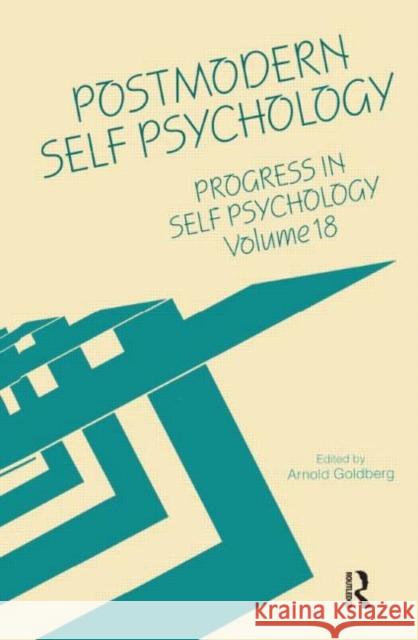Progress in Self Psychology, V. 18: Postmodern Self Psychology » książka
Progress in Self Psychology, V. 18: Postmodern Self Psychology
ISBN-13: 9780881633658 / Angielski / Twarda / 2002 / 272 str.
Progress in Self Psychology, V. 18: Postmodern Self Psychology
ISBN-13: 9780881633658 / Angielski / Twarda / 2002 / 272 str.
(netto: 233,18 VAT: 5%)
Najniższa cena z 30 dni: 241,85
ok. 22 dni roboczych.
Darmowa dostawa!
This work charts the path of self psychology into the postmodern era of psychoanalysis. It covers the several tributaries of self-psychological thought in the decades after Kohut and continues with an elaboration of reflective relativism as a self-psychological way out of epistemological quagmires about the essential reality of the analytic endeavour. Clinical contributions offer contemporary perspectives on clinical themes that engaged Kohut in the 1970s: a study of the effect of moments of meeting on systems of pathological accommodation; a reappraisal of empathy as a bi-directional negotiation; and an assessment of the diverse clinical phenomena that justify a prolonged understanding-only phase of treatment. A case presentation of the interpretive process with a phobic young women elicits commentaries that focus on conflicts of interests in the analytic relationship and the role of empathy and interpretation in the therapeutic process.
Postmodern Self Psychology, the last volume of the Progress in Self Psychology series under the editorship of Arnold Goldberg, charts the path of self psychology into the postmodern era of psychoanalysis. It begins with Goldberg's thoughtful consideration of the several tributaries of self-psychological thought in the decades after Kohut and continues with Mark Gehrie's elaboration of "reflective realism" as a self-psychological way out of epistemological quagmires about the "essential reality" of the analytic endeavor. Clinical contributions offer contemporary perspectives on clinical themes that engaged Kohut in the 1970s: a study of the effect of "moments of meeting" on systems of pathological accomodation; a reappraisal of empathy as a "bi-directional negation"; and an assessment of the diverse clinical phenomena that justify a prolonged "understanding only" phase of treatment. The theory section of Volume 18 comparably charts the movement of self psychology toward a postmodern sensibility. Contributors reappraise intersubjectivity theory as a contextualist treatment approach consistent with dynamic systems theory; return to Kohut's concept of selfobject relationships, with special attention to the separate subjective and intersubjective components of selfobject experiences; and develop one of Kohut's early ideas into a theory of "forward edge" transferences that strengthen normal self-development. In all, Volume 18 is a richly insightful progress report on the current status of self psychology and a fitting capstone to Arnold Goldberg's distinguished tenure as editor of the Progress in Self Psychology series.











